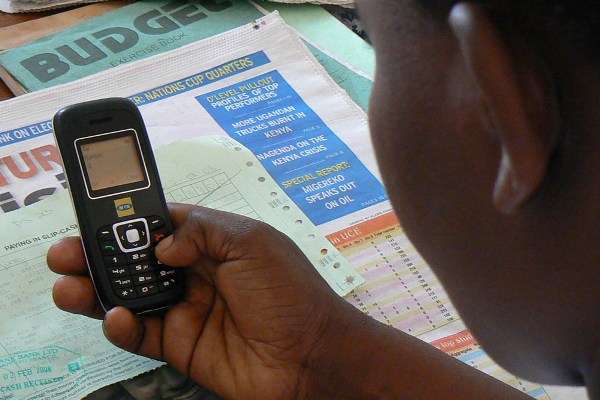By Lillian Nalwoga |
For true democracy to flourish there is need for government transparency, greater access to public information, and inclusion of citizens’ voices in decision-making processes. The use of Information and Communication Technologies (ICT) can aid in increasing awareness and empowering citizens to meaningfully participate in governance processes such as monitoring public services delivery.
The Collaboration on International ICT Policy in East and Southern Africa (CIPESA) has since 2011 implemented the iParticipate Uganda project, which leverages ICT to catalyse civic participation and democracy monitoring in Uganda. While working with grassroots based partners, CIPESA has offered capacity building sessions, and created awareness on how Ugandan citizens can effectively use different ICT tools for social accountability, including monitoring and demanding quality public services.
In 2014, CIPESA worked with the Northern Uganda Media Club (NUMEC) to document service delivery failures as a result of donor aid cuts to the Peace, Recovery and Development Plan (PRDP). The PRDP was launched in 2007 by the government of Uganda in partnership with development partners to revitalise the economy and promote peace-building and reconciliation in post-conflict northern Uganda. However, implementation has faced challenges of corruption and a lack of transparency in its methods of work.

The CIPESA-NUMEC work thus involved promoting dialogue between community members and duty bearers through community debates, radio talk shows and social media on how to improve service delivery for people living in post-conflict communities. Through these engagements, leaders have recognised the need to promote awareness of government programmes among the local communities for better monitoringof service delivery.
For instance, in one of the community debates organised by NUMEC, David Latigo Odongo, the Local Council Chairman of Acet village, Gulu district, acknowledged that lack of sensitisation hampers beneficiaries from monitoring government implemented projects. “They [citizens] do not know who will monitor and take care of PRDP projects, that is why when projects like water boreholes are constructed in the area, people look at it as freebies from either the government or NGOs,” he said.
Further, following the production of a documentary on poor service delivery, Martin Mapenduzi, the Gulu district Chairperson, was prompted to make follow-up on some stalled projects.

Similarly, in western Uganda where CIPESA is working with the eSociety Resource Centre located in Kasese district, another leader acknowledgenes to reach them. eources to health centers were located in semi-urban areas and the journalists lacked enough reseources toed the importance of promoting access to information as a means of enhancing citizens’ monitoring of public service delivery. “Meaningful participation in democratic processes requires informed participants hence the need for increased access to information,” observed John Thawite, the District Information Officer during the e-governance training for local leaders in the district.
This training was aimed at giving district officials skills to update the district website, elibrary and participate in the online district discussion group and Facebook discussions. As a result of this training, and the provision of free ICT services, the district online platforms have been more active and are updated regularly.
The centre serves as a community facility hosted by the Kasese district local government. CIPESA has supported it through the provision of computer equipment, internet subscription and facilitation for the ICT training officer.

At the Busoga Open Source Development Initiative (BROSDI) centre in Mayuge district in eastern Uganda, local communities are being supported by CIPESA in using ICT to monitor education service delivery. This has included training in the use of ICT for civic engagement, access to information and service delivery monitoring. Beneficiaries from one of the training sessions went on to create a project blog to enable users report on different service delivery issues in the district.
In 2014, more than 200 community members benefited from the trainings conducted at our partner centres.
CIPESA also conducted participatory research to document citizens’ knowledge, perceptions and attitudes towards use of ICT tools in monitoring service delivery. Participants in the research acknowledged the need to empower leaders in the use of ICT to respond to citizens’ demands. “Social media will be great when a new breed of users, that is people in leadership, start using it for civic engagement and governance monitoring,” observed a participant in a focus group discussion on citizens’ motivations for using ICT in governance processes.
These grassroots-based engagements, as well as the findings of research exercises on citizens’ and leaders’ use of ICT, access to information and service delivery monitoring will further inform CIPESA’s efforts to close the gap in the awareness and use of technology for enabling democratic processes.

